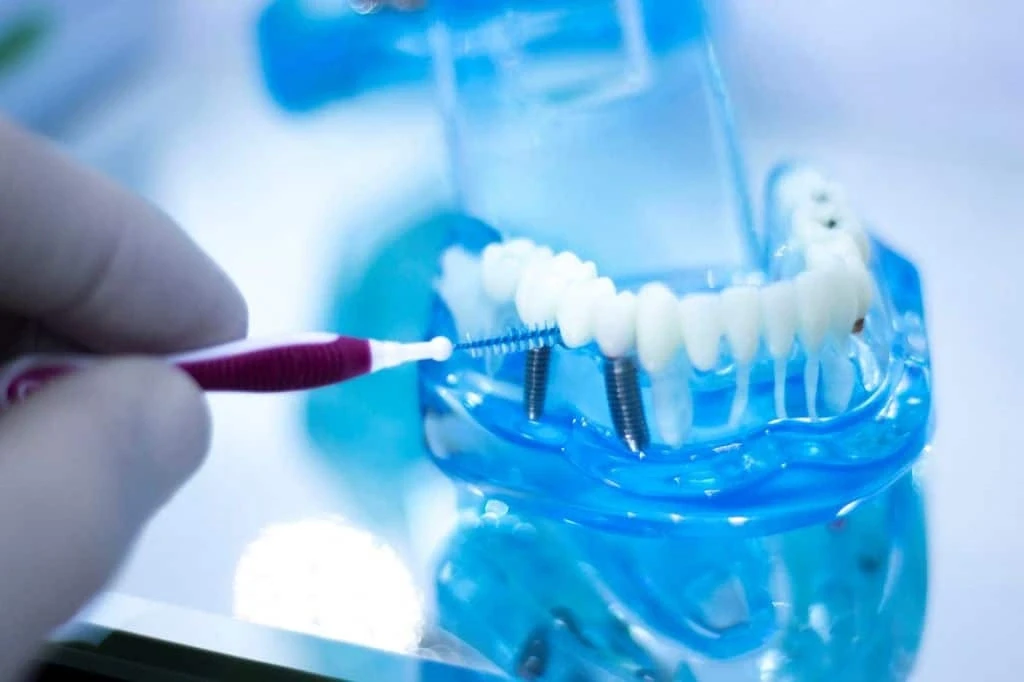
Oct 16, 2025
How to Maintain Dental Implants for a Lifetime
By Dr. Leslie Patrick, DMD
Congratulations on your new dental implant! You've made a wonderful, long-term investment in your smile, your health, and your confidence. A common question our patients at Smyrna Dental Studio ask after their treatment is complete is, "Now that I have it, how do I take care of it?"
It's a crucial question. While your new implant is incredibly durable and designed to last a lifetime, its long-term success is a partnership. It depends on the quality of our work and the quality of care you receive at home. This guide will walk you through the simple, essential steps to maintain your dental implant and protect your investment for decades to come.
Understanding the Goal: Preventing Peri-Implantitis
It’s a common myth that since an implant is made of titanium and porcelain, it doesn't need much care. While the implant itself cannot develop a cavity, the surrounding gum and bone tissue are still living and vulnerable to bacterial infection. The primary threat to a dental implant's longevity is a condition known as peri-implantitis.
Peri-implantitis is an infection in the gums and bone surrounding an implant, essentially a form of gum disease specific to implants. The buildup of bacterial plaque is the cause. If left untreated, this infection can destroy the bone that supports the implant, causing it to loosen and fail. The good news? Peri-implantitis is almost always preventable with an excellent oral hygiene routine.
Your Daily At-Home Care Routine: The Non-Negotiables
Caring for an implant is very similar to caring for your natural teeth, with a special focus on the area where the implant crown meets the gumline.
1. The Right Toothbrush and Technique
The Tool: Use a soft-bristled toothbrush (either manual or electric is fine). Hard bristles can be too abrasive and scratch the crown or irritate the gums.
The Technique: Brush for two minutes, twice a day. Pay extra attention to gently brushing all sides of the implant crown and along the gumline.
2. The Critical In-Between Cleaning (Flossing)
Cleaning the space between the implant and its neighboring teeth is essential.
The Best Tool (Highly Recommended): A Water Flosser. A device like a Waterpik® is extremely effective at flushing out plaque and food debris from the small crevice between the implant crown and the gum tissue. It's the best tool for the job.
Other Tools: Special thick, spongy "implant floss" or small interdental brushes are also excellent for cleaning around the implant post.
3. The Right Toothpaste
Use a low-abrasive, non-whitening toothpaste that contains fluoride. Highly abrasive whitening toothpastes can scratch the surface of your porcelain crown over time.
Your Professional Care Routine: The Essential Partnership
Your daily home care is your first line of defense, but it's not complete without a partnership with our professional team.
Maintain Your Six-Month Checkups: Regular dental cleanings and dental exams are non-negotiable. These visits allow us to monitor the health of your implant and the surrounding bone.
Specialized Cleaning: Our hygienists use specialized instruments made of a material (such as plastic or titanium) that will not scratch or damage your implant crown or the post underneath during your professional cleaning.
Annual X-rays: We will typically take a quick X-ray once a year to check the bone level around your implant and ensure everything remains stable and healthy.
FAQs: Your Implant Maintenance Questions Answered
Q1: What are the warning signs of a problem with my implant? You should call our Smyrna office immediately if you notice any of the signs of peri-implantitis, such as:
Bleeding or swollen gums around the implant when you brush.
Bad taste or pus coming from the implant area.
Pain or discomfort when you chew.
A feeling that the implant or its crown is loose.
Q2: Do I really need a water flosser? Can't I just use regular floss? While regular floss is better than nothing, a water flosser is superior for cleaning around an implant. The shape of an implant crown where it meets the gum is different from a natural tooth, and the pulsating water can clean that hard-to-reach area more effectively than string floss can. It is a highly recommended investment.
Q3: Can I treat my implant exactly like my other teeth? Yes, for the most part. The principles of brushing and cleaning are the same. The main difference is that you should avoid using your implant for things you wouldn't do with a natural tooth, like chewing on ice, opening bottles, or biting on very hard objects.
Q4: Will I always have this implant for the rest of my life? The implant post that is fused in your jaw is designed to last a lifetime. The porcelain crown on top, like a crown on a natural tooth, is subject to the forces of chewing and may eventually show wear. You can expect a well-made crown to last 15-25 years before it may need to be replaced, which is a simple, non-surgical procedure.
Protecting Your Lifelong Investment
A dental implant is a remarkable piece of modern technology designed to be a permanent part of your smile. Its incredible longevity is a direct result of the partnership between our expert placement and your diligent daily care.
By committing to this simple but essential maintenance routine, you are protecting your investment and ensuring your smile remains healthy, functional, and beautiful for decades to come.
Whether you have a new implant or have had one for years, contact Smyrna Dental Studio today to schedule your next professional cleaning and checkup. Let's work together to keep your smile healthy for a lifetime!






